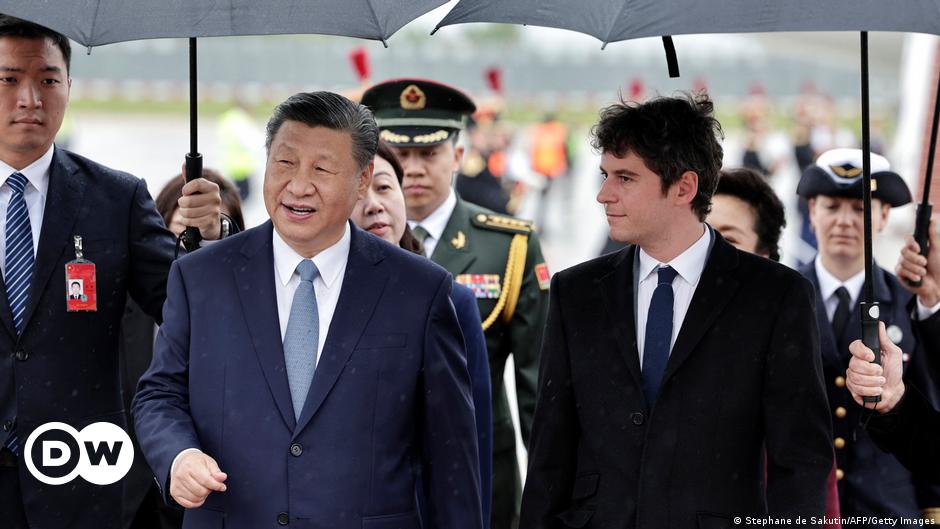Xi Jinping is visiting the European Union for the first time in five years. Trade tensions and China’s position on Russia’s war in Ukraine are set to be the main sticking points.
When Chinese President Xi Jinping last visited the European Union in 2019, the world was a simpler place. No one had heard of COVID-19, Russia’s full-scale invasion of Ukraine was far off and Brussels and Beijing were eyeing a trade and investment deal.
Relations are far frostier now: the deal is on ice after an exchange of sanctions, and an increasingly hawkish EU has brewed a list of new laws to decrease dependence on China.
Xi begins his trip in France on Sunday, before heading to Serbia and Hungary. And while he may feel the heat from the EU’s toughened stance in Paris, the welcome will be warmer in Belgrade and Budapest, both seen as more sympathetic toward Moscow and Beijing.



This is the best summary I could come up with:
Relations are far frostier now: the deal is on ice after an exchange of sanctions, and an increasingly hawkish EU has brewed a list of new laws to decrease dependence on China.
The French government source said Macron will “encourage China, as one of Russia’s main partners, to use the levers at its disposal to change Moscow’s calculation and contribute to a resolution of the conflict.”
Xi’s time in France will also see him sign new business deals, including reported plans for fresh Chinese orders with French aviation giant Airbus.
Isabelle Feng, a researcher at the French-language Free University of Brussels, said she expects EU-China trade to decrease "very, very slowly” amid these strained ties.
It has created a lot of emphasis on the narrative that there is a need for reconstructing the global order," said Stefan Vladisavljev, a Belgrade-based researcher with the Foundation BFPE for a Responsible Society.
Officially an EU membership candidate, Serbia and other Western Balkan nations sit in a geopolitical hot spot where different powers are competing for influence.
The original article contains 866 words, the summary contains 166 words. Saved 81%. I’m a bot and I’m open source!